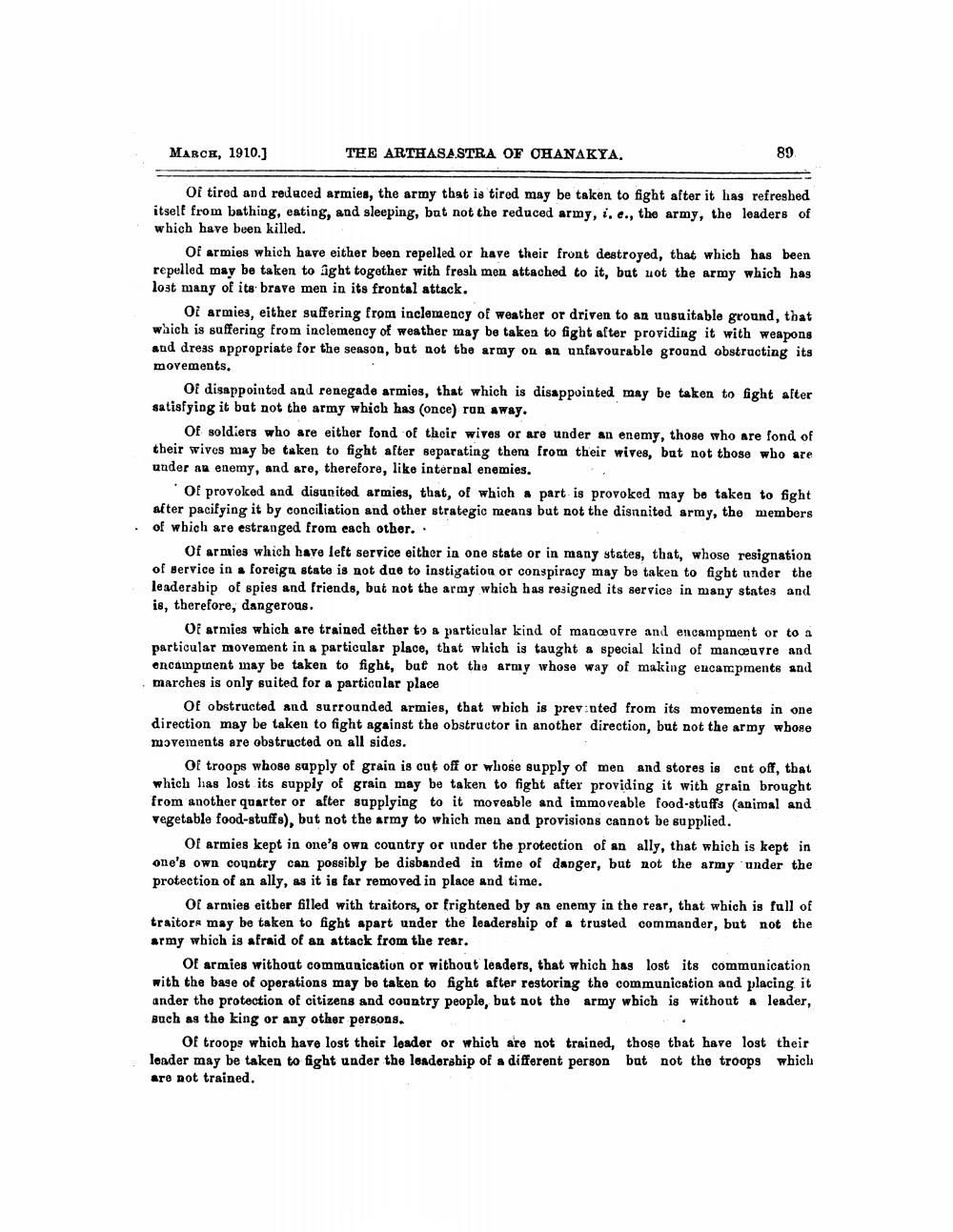________________
MARCH, 1910.)
TEE ARTHASASTRA OF CHANAKYA.
89
Of tirod and reduced armies, the army that is tired may be taken to fight after it has refreshed itself from bathing, eating, and sleeping, but not the reduced army, i, e., the army, the leaders of which have been killed.
Of armies which have either been repelled or have their front destroyed, that which has been repelled may be taken to âght together with fresh men attached to it, but uot the army which has lost many of its brave men in its frontal attack.
O2 armies, either suffering from inclemency of weather or driven to an unsuitable ground, that which is suffering from inclemency of weather may be taken to fight after providing it with weapons and dress appropriate for the season, but not the army on an unfavourable ground obstructing its movements.
Of disappointed and renegade armies, that which is disappointed may be taken to fight after satisfying it but not the army which has once) ran away.
Of soldiers who are either fond of their wives or are under an enemy, those who are fond of their wives may be taken to fight after separating them from their wives, but not those who are under nu enemy, and are, therefore, like internal enemies.
of provoked and disunited armies, that, of which a part is provoked may be taken to fight after pacifying it by conciliation and other strategic means but not the disnnited army, the members of which are estranged from each other.
Of armies which have left service either in one state or in many states, that, whose resignation of service in a foreign state is not due to instigation or conspiracy may be taken to fight under the leadersbip of spies and friends, but not the army which has resigned its service in many states and is, therefore, dangerous.
Of armies which are trained either to a particular kind of manoeuvre and encampment or to a particular movement in a particular place, that which is taught a special kind of manoeuvre and encampinent may be taken to fight, but not the army whose way of making encampments and marches is only suited for a particular place
of obstructed and surrounded armies, that which is prev:nted from its movements in one direction may be taken to fight against the obstructor in another direction, but not the army whose movements are obstructed on all sides.
Of troops whose supply of grain is cut off or whose supply of men and stores is cut off, that which has lost its supply of grain may be taken to fight after providing it with grain brought from another quarter or after supplying to it moveable and immoveable food-stuffs (animal and vegetable food-stuffs), but not the army to which men and provisions cannot be supplied.
Of armies kept in one's own country or under the protection of an ally, that which is kept in one's own country can possibly be disbanded in time of danger, but not the army under the protection of an ally, as it is far removed in place and time.
Of armies either filled with traitors, or frightened by an enemy in the rear, that which is full of traitors may be taken to fight apart under the leadership of a trusted commander, but not the army which is afraid of an attack from the rear.
Of armies without communication or without leaders, that which has lost its communication with the base of operations may be taken to fight after restoring the communication and placing it ander the protection of citizens and country people, but not the army which is without a leader, such as the king or any other persons.
Of troops which have lost their leader or which are not trained, those that have lost their leader may be taken to fight under the leadership of a different person but not the troops which are not trained.




